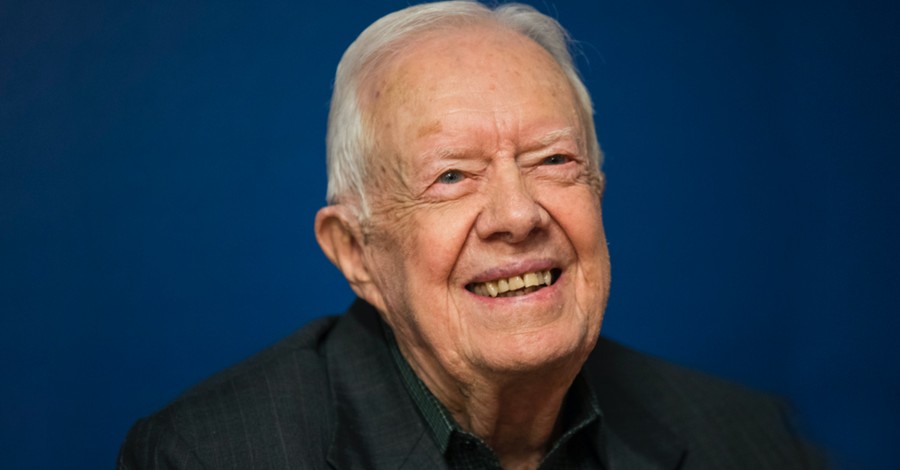
In the wake of the announcement that former President Jimmy Carter will spend his remaining days at home, political observers have reappraised different aspects of his presidency. By any objective measure, Carter’s Presidency was one of the most difficult in American history. Inflation flew out of control. The country faced an energy crisis unlike any it had ever met. Americans struggled to trust the government in the wake of Vietnam and Watergate. Four months later, the Iranian hostage crisis would erupt, and Carter’s Presidency would be over.
In July 1979, Carter’s administration put him in a pinch by prematurely announcing he would give a televised speech addressing the energy crisis. He spent the next few days at Camp David with people from all walks of life, asking them what they thought about life in America in general and the energy speech in particular.
The result has been dubbed “The Malaise Speech,” even though he never used the word. He spent a third of the speech sharing what criticisms people offered of his leadership. As many have pointed out, this might be the most honest self-criticism a President has ever shared. The middle of the speech focused on a “crisis of confidence” in American life, and he closed with a six-point plan for addressing the energy crisis.
Washington panned the speech. They accused Carter of blaming the American people for his administration’s failures. Some Americans received the speech warmly, and his approval rating jumped by eleven points. History has not been kind to the speech, viewing it as a harbinger for the coming beat down he would take in the election of 1980.
As Carter sought to diagnose the problem at the heart of American life, he blamed Washington, but recognized that what happened there was a symptom of the disease in the rest of America. Carter said, “In a nation that was proud of hard work, strong families, close-knit communities, and our faith in God, too many of us now tend to worship self-indulgence and consumption. Human identity is no longer defined by what one does but by what one owns. But we’ve discovered that owning things and consuming things does not satisfy our longing for meaning. We’ve learned that piling up material goods cannot fill the emptiness of lives which have no confidence or purpose.”
He continued with words that could be written today. “What you see too often in Washington and elsewhere around the country is a system of government that seems incapable of action. You see a Congress twisted and pulled in every direction by hundreds of well-financed and powerful special interests. You see every extreme position defended to the last vote, almost to the last breath, by one unyielding group or another. You often see a balanced and a fair approach that demands sacrifice, a little sacrifice from everyone, abandoned like an orphan without support and without friends.”
Carter noted that there is an interplay between what takes place at the government level and what happens in our communities and living rooms. When we ignore our communities, only look out for ourselves, and relentlessly consume, we should not be surprised when our government is broken. The first three words of the Constitution, “We the people,” remind us that the government reflects who we are. Self-absorbed people with a narrow set of interests elect politicians with a narrow set of interests.
Carter’s words about “every extreme position defended to the last vote” seem especially pertinent today. We live in a nation founded on compromise. The Legislative branch of the government exists as it does because of a compromise over how states would be represented. The capital sits in Washington, D.C., instead of New York City because of a compromise. Yet, we expect our politicians never to compromise. We view politics as a zero-sum game where we either completely win or our enemies completely win. We have lost any idea of a fellow citizens giving and taking so that we make progress, and everyone gets a little bit of what they want.
The “Crisis of Confidence” speech offers hope for us today, but not in the way we might think. The malaise of the 1970s gave way to the hope and optimism of the 1980s. A decade of skepticism, division, and retreat led to progress, growth, and victory. We could see the same thing happen in our day, but it requires some changes on our part. We must become more active in our communities, seeking to understand what the needs are beyond our own living rooms. And it is imperative that we elect leaders who refuse to give in to hyper-partisan rhetoric and appeal to our basest instincts. Instead, let us elevate leaders who appeal to the better angels of our nature and offer hope for the future.
Photo courtesy: ©Getty Images/Drew Angerer/Staff
Scott Slayton writes at “One Degree to Another.”










